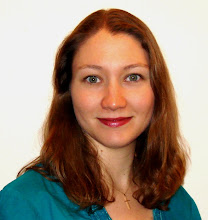I felt like I was back in my undergrad days, thinking about the elements of metaphor and metonymy. I had fantastic literature courses and professors who introduced me to new ways of thinking about writing and thinking about thinking; I count myself blessed for the experience.
The Sesame Street song "One of these things is not like the other, one of these things just doesn't belong" is going through my head. I know I don't belong to this new pattern of information gathering and distribution we've been talking about, because as soon as I saw the option of downloading the pdf to read (versus navigating the Kairos site), I immediately did. Give me a straight line to follow through a text every time -- I will create my own networks of meaning, and I'd rather they weren't put there for me -- I find it distracting.
I thought the most interesting quote in this piece was, "Meaning emerges from interplay." I like the idea of meaning emerging, growing, slowly becoming apparent through effort and activity. And I especially like the idea of play -- how we play with meanings to make new ones. Play and effort are not mutually exclusive. It makes me think of how young children learn to read (acquire the foundational skills of phonemic awareness) by playing with sounds , how they learn to write by playing with shapes. They begin to make meaning through play. Whenever we're together, my brother and I do this constantly, playing with language to suit our own bizarre shared sense of humor. In our mid-late twenties, we still laugh hysterically, we still make new meanings and enjoy the play of language. No wonder he's a writer and I'm a language teacher -- we both found what we love. :)
So we need to make new assessment meanings. We need to decontextualize, recontextualize, and (to quote Scot) play around with our notions of what makes compositions work. I like what Sorapure called "broad rhetoric" -- letting a piece rise or fall on its merits by looking at its ability to create the desired effect on the intended audience. There's authentic assessment for you. But I also agree, for teaching purposes, we need to give more guidance. I think the best approach may be to look at pieces we can agree are excellent -- target models -- and try to ascertain what makes them work: How do the best compositions work? The metaphor/metonymy categories seem like a reasonable place to start.
Y'all are the best!
16 years ago
